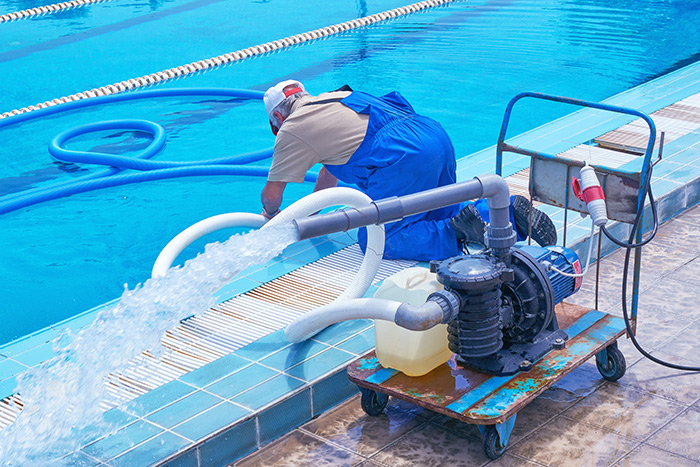14 July 2023

Swimming is an excellent activity for people of all ages.
Whether you want an escape from the scorching summer heat or simply want to soothe your aching joints, there is no activity better than swimming.
However, a pool can often be home to several undesirable contaminants, including bacteria and insects. They are not only a health hazard but can also make your swimming experience an unpleasant one.
So how do you keep your swimming pool clean and maintain pool water quality?
Perhaps, the most common types of swimming pools are the chlorine pools, and part of the reason is that we are used to it. They are easy to maintain as you can easily find chlorine tablets. Moreover, it is relatively simple to use chlorine tablets for pool maintenance.
All you have to do is add them to the floating disbursement device or into the pool pump unit. Chlorine tablets are effective in eliminating mold and bacterial growth in the water. Furthermore, it is very useful in preventing algae growth in standing pool water.
However, pools that use chlorine for sanitization require a more constant check on the water pH. Since chlorine is only effective in a certain pH range, you need to ensure that the water pH is maintained between 7.2 and 7.6 all the time.
The other approach that is used to maintain the pool water quality is salt chlorinator. Pools, where salt chlorinator is used, are often referred to as saltwater swimming pool.
The salt chlorinator uses salt crystals that are converted into hydrogen gas and water-soluble chlorine through electrolysis. The hydrogen gas escapes from the water but the gaseous chlorine remains in the pool and works on the same principles as chlorine tablets.
In a saltwater pool, you are required to maintain the appropriate levels of salt chlorinator because pool water is often lost due to splashing, evaporation, or drainage.
However, unlike commonly believed, the salt content does not disappear from the pool through water evaporation, and this is precisely why the initial cost is more than chlorine.
You will be required to invest in a salt chlorinator generator that operates automatically and comes with an operational life of at least five years. However, the equipment requires adequate cleaning and maintenance.
Treating your pool with chlorine is an essential aspect of pool maintenance but how often you should do it is a question that needs to be addressed.
According to the Association of Pool and Spa Professionals, the free chlorine level should range between 2.0 and 4.0 ppm. Moreover, the Center for Disease Control (CDC) recommends that the free chlorine levels be above 1.0 ppm for pools and 3.0 ppm for hot tubs.
When you measure the chlorine in your pool and find out the resultant outside these ranges, it’s time to treat your pool with chlorine. But adding the right amount of chlorine may depend on several other reasons, which are highlighted below.
When there is organic built up in the pool, a regular dosage of chlorine will not treat your pool. In that case, you will have to shock the pool.
By shocking the pool, you add heavy amounts of chlorine for a short amount of time to raise the level of free chlorine in the water, killing the bacteria and sanitizing water.
Another major factor that affects the amount of chlorine you should add in your pool is the pH level. In case the water pH is too high, adding chlorine will not disinfect the water.
Moreover, the chlorine will be ineffective in acidic water as well. Therefore, before you add chlorine to treat the water, make sure the pool water pH ranges between 7.2 and 7.6.
Regardless of how frequently you treat the pool water with chlorine, you need to ensure that the pool water’s free chlorine level should stay between 1.0 and 3.0 ppm.
Anything beyond this might increase the risk of skin and eye irritations. Free chlorine level below 1.0 ppm runs swimmers into the risk of several other health conditions due to unhygienic pool conditions.
With all this rain, do you need your pool water tested? For help contact Monnick Supply.
Source: swimminginsider.com